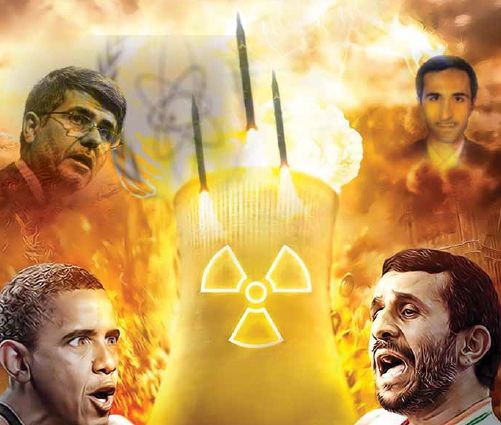Iranian women soccer fans have set their hopes on the Asian Football Confederation (AFC) to return them to the terraces after having been banned from stadiums for years to prevent them from looking at men’s bodies.
The women expect the AFC’s insistence that Iran adhere to the Asian soccer body’s standards when it hosts this fall the AFC Under-16 Championship to grant them access to matches during the tournament but would like to see that spark a permanent lifting of the ban imposed after the overthrow of the Shah in 1979.
“So far as AFC is concerned, there should be no sex discrimination regarding the presence of men and women at stadiums,” AFC Director of National Team competition Shin Mangal was quoted as saying by Shiite news agency Shafaqna.
The AFC said it had received assurances from Ali Kaffashian, the head of the Islamic Republic of Iran Football Federation (IRIFF) that it would comply with AFC regulations.
The AFC quoted Mr. Kaffashian as saying at the drawing of the groups for the tournament that the IRIFF is “fully ready to follow all the requirements and instructions from AFC.” The Iranian soccer boss repeated his position in remarks to Iranian reformist newspaper Sharq.
In an editorial the newspaper said “the youth championships could create a great change in Iranian football. They are an excellent opportunity.”
The IRIFF’s apparent willingness to counter Iranian policy and adhere to international standards has sparked significant domestic debate that pits conservatives against liberals. Proponents of a permanent lifting of the ban are weakened by a power struggle within Iran’s soccer elite.
Two proponents of lifting the ban are at each other’s throats.
Iranian president Mahmoud Ahmadinejad, an avid soccer fan who at times micromanages the affairs of the IRIFF and six years ago unsuccessfully attempted to lift the ban, is trying to get Mr. Kaffashian’s re-election in March as head of the Iranian soccer body annulled by the courts.
Mr. Ahmadinejad’s attorney general has argued that Mr. Kaffashian could not hold public office as a former civil servant even though that was not an issue four years ago when he was first elected with the president’s backing.
Mr. Ahmadinejad turned against Mr. Kaffashian because Iranian soccer has failed to perform internationally under his leadership. The president had hoped to shore up his tarnished image and dropping popularity by associating himself with the country’s most popular sport. For that tactic to work, he needed a soccer success that Mr. Kaffashian failed to deliver.
In effect, Mr. Kaffashian is the fall guy for the failure of successive national coaches to deliver performance even though Mr. Ahmadinejad took a direct interest in their appointment. The coaches failed to take Iran to the 2010 World Cup finals or triumph in the 2011 Asian Cup. Iran still stands a chance for qualifying for the 2014 Brazil World Cup but that will do Mr. Ahmadinejad little good after his supporters were trounced in parliamentary elections in March.
Mr. Ahamdinejad, however, also turned against Mr. Kaffashian because the soccer pitch on Mr. Kaffashian’s watch has repeatedly in Tehran and Tabriz, the capital of East Azerbaijan, has become a venue for protest against his government. The government, aware that the pitch was an important incubator of the revolt that toppled Egypt’s Hosni Mubarak and has played a role in popular revolts elsewhere in the Middle East and North Africa, last year suspended soccer matches in Tehran during celebrations of the anniversary of the Islamic revolution.
While Iran is almost certain to comply with AFC rules to ensure that it does not lose the hosting of the games, more difficult will be turning the breaching of the wall into its destruction. It would not be the first time that Iran opportunistically complies with international soccer requirements only to return its discriminatory practice afterwards. Iran allowed women into the stadium during World Cup qualifiers played in the country in 2007 but maintained the ban for all other matches.
“Women looking at a man’s body, even if not for the sake of gratification, is inappropriate. Furthermore, Islam insists that men and women should not mix,” said Grand Ayatollah Fazel Lankarani back in 2006 when Mr. Ahmadinejad failed to get the ban lifted permanently.
Mr. Ahmadinejad’s effort was in part sparked by the fact that significant numbers of Iranian women were succeeding to circumvent the ban by sneaking into stadiums dressed as men. The practice attracted attention when Iranian filmmaker Jafar Panahi won international acclaim for his documentary Offside that tells the story of a group of young girls who dress up as boys to pass through stadium gates only to be detained. A second more recent movie, Shirin Was A Canary, recounts the tale of a girl who is expelled from school for her love of soccer.
About The Author:
James M. Dorsey is a senior fellow at the S. Rajaratnam School of International Studies at Nanyang Technological University in Singapore and the author of the blog, The Turbulent World of Middle East Soccer.

 von
von 
